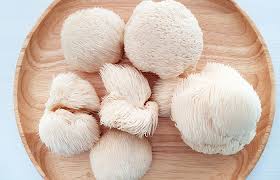Lion’s Mane mushrooms have gained popularity in recent years, thanks to their distinctive appearance and potential health benefits. As more people are focusing on maintaining a low-calorie diet to manage their weight and improve their overall health, it’s essential to understand how Lion’s Mane mushrooms can fit into this lifestyle.
2. Lion’s Mane Mushroom Overview
Before delving into their nutritional content, let’s first understand what Lion’s Mane mushrooms are. Lion’s Mane mushrooms (Hericium erinaceus) are a type of edible and medicinal fungi. They are often recognized by their shaggy, white appearance, which resembles a lion’s mane. These mushrooms have a long history of use in traditional medicine, particularly in Asian cultures.
3. Lion’s Mane Nutrition Facts
Lion’s Mane mushrooms offer a range of essential nutrients, making them a valuable addition to any diet. Here are some key Lion’s Mane nutrition facts:
- Protein: Lion’s Mane mushrooms are a good source of plant-based protein.
- Dietary Fiber: They are also rich in dietary fiber, which can aid in digestion and promote a feeling of fullness.
- Vitamins and Minerals: Lion’s Mane contains various vitamins and minerals, including B-vitamins, potassium, and zinc.
- Low in Calories: Importantly, they are low in calories, making them an excellent choice for those on a low-calorie diet.
4. Benefits of Lion’s Mane Mushrooms
Incorporating Lion’s Mane mushrooms into your diet can offer a wide range of health benefits, including improved cognitive function, reduced inflammation, and potential immune system support. These advantages can complement the goals of a low-calorie diet by helping you maintain overall well-being while keeping your calorie intake in check.
5. Lion’s Mane and Weight Management
One of the primary concerns for individuals on a low-calorie diet is managing their weight. Lion’s Mane mushrooms can be a helpful addition to such a regimen due to their low-calorie content, high fiber, and protein. These factors can contribute to feelings of fullness and satisfaction, making it easier to adhere to your dietary goals.
6. Incorporating Lion’s Mane into a Low-Calorie Diet
If you’re considering adding Lion’s Mane mushrooms to your low-calorie diet, here are some practical ways to incorporate them:
- Mushroom Stir-Fry: Add Lion’s Mane mushrooms to a vegetable stir-fry for an extra layer of flavor and nutrition.
- Lion’s Mane Soup: Make a delicious low-calorie soup with Lion’s Mane mushrooms as a key ingredient.
- Mushroom Toppings: Use sautéed Lion’s Mane mushrooms as a topping for salads or sandwiches.
7. FAQs about Lion’s Mane Mushrooms
Q1: Are Lion’s Mane mushrooms suitable for vegans and vegetarians?
Yes, Lion’s Mane mushrooms are suitable for both vegans and vegetarians as they are entirely plant-based.
Q2: Can Lion’s Mane mushrooms help with weight loss?
While not a magic solution, Lion’s Mane mushrooms can support weight management by providing satiety and nutrition without a high calorie count.
Q3: Are there any side effects to consuming Lion’s Mane mushrooms?
In general, Lion’s Mane mushrooms are considered safe to eat, but some individuals may experience mild digestive discomfort in rare cases.
8. Conclusion
In conclusion, Lion’s Mane mushrooms are a low-calorie, nutrient-rich superfood that can be a valuable addition to a low-calorie diet. Their unique nutritional profile and potential health benefits make them an attractive choice for those seeking to maintain a healthy weight and overall well-being.
If you’re interested in incorporating Lion’s Mane mushrooms into your low-calorie diet, consider trying the high-quality products offered by Lone Star Mushrooms. With our commitment to providing top-notch mushrooms at competitive prices, you can enhance your diet while enjoying the benefits of this remarkable superfood.
For more information and to explore our selection of Lion’s Mane mushrooms, visit the Lone Star Mushrooms website.


